Full Event Schedule
Day 1: November 17, 2021
11:00AM-12:30PM EST: Session I – Pioneering DLT in the nuclear sector (Moderated by Cindy Vestergaard, The Stimson Center)
- Sarah Frazar, Group Leader, Global Security Technology and Policy Group Pacific Northwest National Laboratory
- Tapani Honkamaa, Principal Advisor, Finland Radiation and Nuclear Safety Authority (STUK)
- Jon Geater, Chief Technical Officer, Jitsuin
- Michele Lunney, Vice President, Business Development, OARO
12:30-12:45PM EST: Break
12:45-2:00PM EST: Session 2 – Pioneering DLT in the nuclear sector (Moderated by Lovely Umayam, The Stimson Center)
- Allan Simpson, Senior Research Technologist, UK National Nuclear Lab
- Veronica Venturini, Computer Security Information and Communications Technology Management, Argentine National Atomic Energy Commission (CNEA)
Day 2: November 18, 2021
11:00AM-12:30PM EST: Session 3: Threats and Risks in International Commerce: Using DLT to Prevent WMD Proliferation (Moderated by Richard Cupitt, Senior Fellow and Director, Partnerships in Proliferation Prevention, The Stimson Center)
- David Centofante, Management and Program Analyst, Federal Bureau of Investigation
- Cindy Vestergaard, Senior Fellow and Director, Blockchain in Practice program and Nuclear Safeguards program, The Stimson Center
- Andrea Viski, Nonresident Fellow, Stimson Center
12:30-1:00PM EST: Break
1:00-2:00PM EST: Roundtable – Building trust with DLT (Moderated by Cindy Vestergaard, The Stimson Center)
- Edward Obbard, Researcher, UNSW Sydney
- David Centofante, Management and Program Analyst, Federal Bureau of Investigation
- Jon Geater, Chief Technical Officer, Jitsuin
- Michele Lunney, Vice President for Business Development, OARO
- Sara Hsu, Visiting scholar at Fudan University’s Fintech Research Center
Featured Speakers

Jon Geater, Chief Technical Officer, Jitsuin
Jon Geater has over 20 years of commercial crypto, hardware, and cyber security experience leading technology and product teams at the cutting edge of payments, mobile, aerospace, automotive, and industrial security. He has founded and edited successful industry standards in the areas of trusted execution, trusted computing, payments cryptography, and enterprise key management as well as serving multiple terms in official governing and technical positions in the Digital Twin Consortium, Hyperledger, PCI Council, OASIS, GlobalPlatform, and TCG. Currently founder and CTO of Jitsuin, a blockchain-based cyber resilience company, Jon has previously been CTO of nCipher, ARM Secure Services Division, Trustonic, and Thales e-security.
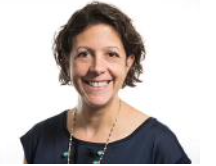
Sarah Frazar, Group Leader, Global Security Technology and Policy Group, PNNL
Sarah Frazar is the Group Leader for the Global Security Technology and Policy Group at the Pacific Northwest National Laboratory (PNNL). She manages a team specializing in national security policy, training, stakeholder engagement, and technology integration. Her work explores the policy implications of PNNL’s technical solutions, focusing specifically on the impact emerging technologies will have on U.S. Government nonproliferation missions. She received her undergraduate degree in government from Colby College and her master’s degree in security studies from Georgetown University. Sarah currently serves on the board of trustees for the World Affairs Council in Seattle.
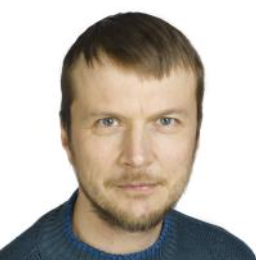
Tapani Honkamaa, Principal Advisor, Radiation and Nuclear Safety Authority (STUK)
Tapani Honkamaa currently works for STUK, Radiation and Nuclear Safety Authority, Finland as a principal advisor and project manager. He graduated in 1994 from Helsinki University of Technology. He has been working as Nuclear Material Safeguards Inspector since 1999. Currently he is Coordinator of Finnish Safeguards Support Programme to the IAEA safeguards. He is acting as a Project Manager of STUK internal project GOSSER (Geological Repositori Safeguards and Security R&D), which is developing necessary safeguards concepts and tools for spent fuel disposal.
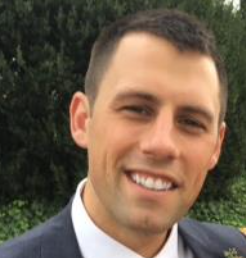
David Centofante, Management and Program Analyst, Federal Bureau of Investigation
Management and Program Analyst David Centofante has been with the Federal Bureau of Investigation for ten years. He has served at the FBI’s Weapons of Mass Destruction Directorate at headquarters for that duration. His passion is creating new and innovative ways to interface with the private sector and first responders to prevent the use and acquisition of WMDs. Centofante is motivated to blaze new trails for the USIC on novel applications of Blockchain technology. Prior to joining the Bureau, he served as an analyst at the Defense Threat Reduction Agency.
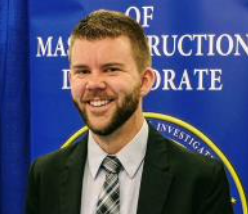
Anthony Bliss, Program Analyst, Federal Bureau of Investigation
Anthony Bliss is a Program Analyst in the Chemical Biological Countermeasures Unit within the Weapons of Mass Destruction Directorate at FBI Headquarters. He assists in managing the chemical weapons threat and provides support and analysis to a variety of programs including the Global Congress on Chemical Security and Emerging Threats, Common Threat Information Exchange, and others focused on industry and retailer outreach
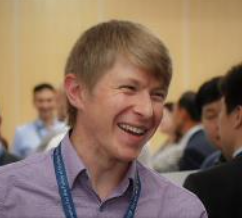
Allan Simpson, Senior Research Technologist, UK National Nuclear Library
Allan is a Technical Lead in the UK National Nuclear Laboratory’s Nuclear and Reactor Physics Team. His projects range across all aspects of the nuclear lifecycle, including spent fuel management, security and non-proliferation, medical radionuclide production, and applications of nuclear energy. He has led the development of NNL’s blockchain PoC since 2019 after recognizing the potential for the technology to increase assurance with the use of software tools for the industry.

Edward Obbard, Researcher, UNSW Sydney
Dr. Edward G. Obbard created SLUMBAT, the first DLT demo for nuclear safeguards at the University of New South Wales in 2018 which was followed by SLAFKA, the first DLT proof-of- concept for safeguards 2019-2020. Edward is a researcher in nuclear materials and nuclear safeguards and leads the nuclear engineering education and research program at UNSW Sydney. He contributed the chapter on Blockchain Tools for Nuclear Safeguards in the up- coming book Blockchain for International Security.

Michele Lunney, Vice President for Business Development, OARO
Michele Lunney is the Vice President of Business Development for OARO. Michele brings 20 years’ experience building strong corporate brands, generating exceptional sales revenue, and driving results within the private and public sectors. At OARO, Michele is responsible for the revenue generation strategy and execution across North America. She is responsible for the growth and management of the Global Nuclear Industry vertical within OARO, which includes the Small Modular Reactor market. She holds a Bachelor of Commerce degree and is a certified Lean Six Sigma Black Belt.
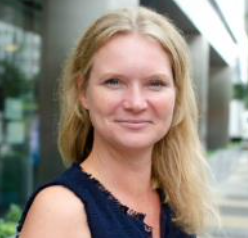
Cindy Vestergaard, Senior Fellow and Director Blockchain in Practice, Nuclear Safeguards, The Stimson Center
Cindy Vestergaard is a Senior Fellow and Director with the Nuclear Safeguards and Blockchain in Practice Programs. Her research on nuclear safeguards focuses on the impact of evolving international obligations and emerging technology on states and facility operators. Her research on blockchain technology considers and tests the potential for the tech to increase transparency, security, and reporting in nuclear safeguards, nuclear security, and the trade of dual-use chemicals.
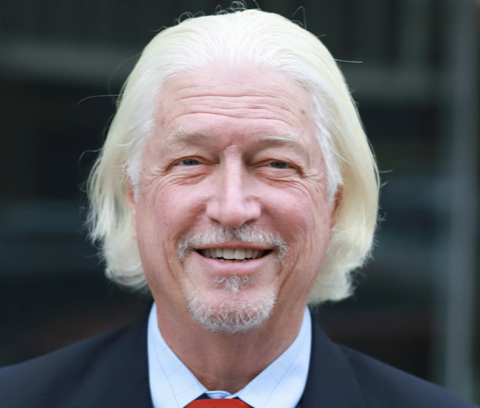
Richard Cupitt, Senior Fellow and Director Partnerships in Proliferation Prevention, The Stimson Center
Dr. Richard T. Cupitt is a Senior Fellow and Director of the Partnerships in Proliferation Prevention program at Stimson. Previously, he served as the Special Coordinator for the U.N. Security Council resolution 1540 at the U.S. State Department (2012 – 2016), and other United Nations, U.S. government and academic posts. He has produced four books and more than 20 peer-reviewed articles on nonproliferation export controls, along with dozens of other security or trade-oriented publications.
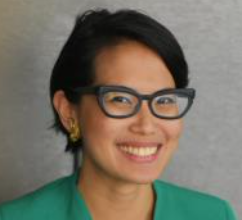
Lovely Umayam, Nonresident Fellow Blockchain in Practice, The Stimson Center
Lovely Umayam is a Nonresident Fellow with Stimson’s Blockchain in Practice program. She was most recently a Fellow with Stimson’s Trade, Technology, and Security Platform. Her work focused on innovative ways to promote and incentivize WMD nonproliferation, such as exploring industry’s role in upholding nuclear security, as well as examining the intersection between WMD nonproliferation and global trade development. Lovely is the founder and chief writer for Bombshelltoe, an award-winning website featuring stories about nuclear history, art, and culture.
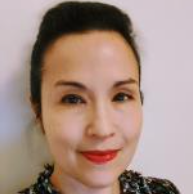
Sara Hsu, Visiting Scholar at Fudan University
Sara Hsu is a Visiting Scholar at Fudan University. Prior to that, she was an Associate Professor of Economics at the State University of New York at New Paltz. Dr. Hsu specializes in Chinese fintech, economic development, informal finance, and shadow banking. She has published one of the only English-language books on the topic of Chinese fintech, “China’s Fintech Explosion,” and informal finance, “Informal Finance in China: American and Chinese Perspectives,” as well as one of the only Chinese-language books on Chinese shadow banking.
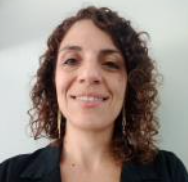
Veronica Venturini, Computer Security Information and Communications Technology Management, CNEA
Verónica Venturini has been working at the Argentine National Atomic Energy Commission (CNEA) for 10 years. She works with user-machine interfaces for nuclear control room systems and with human factor engineering in the Process Control Department. Currently, she is responsible for blockchain technology in the Information Security Department and developing courses responsible on different topics in relation to information security.

Andrea Viski, Nonresident Fellow Blockchain in Practice, The Stimson Center
Andrea Viski is a Nonresident Fellow at Stimson’s Blockchain in Practice Program. She is the Founder and Director of the Strategic Trade Research Institute (STRI), a non-profit organization dedicated to building networks of strategic trade research and practice. She also founded the peer-reviewed journal, Strategic Trade Review. She is an Adjunct Professor at the Schar School of Policy and Government at George Mason University where she teaches a course on strategic trade controls and co-developed a master’s certificate on strategic trade. Her areas of expertise include export controls, sanctions, foreign direct investment, maritime security, proliferation finance, and nuclear security.
